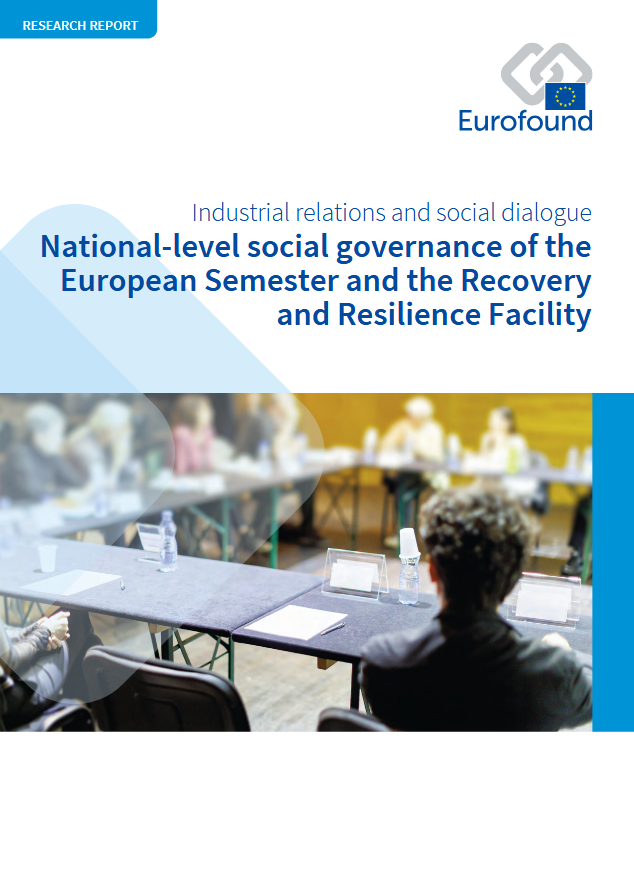Report on the social governance of the European Semester and the Resilience and Recovery Mechanism published
The European Foundation for the Improvement of Living and Working Conditions (Eurofound) has recently published the report “National-level social governance of the European Semester and the Recovery and Resilience Facility”, a comprehensive study in which Notus are proud to have collaborated as part of the research team.
This report is part of a broader series focused on the role of social partners in shaping public policies within the framework of EU economic governance. Specifically, it assesses how trade unions and employer organisations have been involved in the design and implementation of National Recovery and Resilience Plans (NRRPs) and in the various stages of the European Semester.
The study reveals significant variation across Member States. In countries such as Austria, Germany or the Netherlands, long-standing traditions of structured and institutionalised social dialogue have supported meaningful engagement. Conversely, in many other countries, the involvement of social partners has been more limited, sporadic or reduced to a formal consultation process. Stakeholders often expressed dissatisfaction with the quality of consultation, citing insufficient time, lack of information and a limited ability to influence final decisions.
Although both the RRF Regulation and the Semester guidelines emphasise the importance of effective stakeholder participation, the study finds that this principle has not always translated into practice—particularly during the early stages of the NRRPs, which were marked by urgency due to the pandemic.
One of the key messages of the report is that strengthening the quality of social dialogue is not only a matter of democratic legitimacy, but also crucial for ensuring the effectiveness and impact of EU-funded reforms and investments. Evidence shows that early and meaningful engagement of social partners leads to better policy design, smoother implementation and stronger societal ownership.
The report also examines the new EU economic governance framework adopted in 2024, which introduces the national medium-term fiscal-structural plans (MTFSPs) as a central planning tool. Although these plans are also meant to be developed with stakeholder consultation, the 2024 cycle allowed Member States to opt out of consultations due to transitional provisions. The study warns that this flexibility may lead to a repetition of previous shortcomings in social partner involvement.
As contributors to this research, Notus are pleased to support a study that offers a comparative, evidence-based view on the evolving role of social dialogue in shaping Europe’s policy agenda. We reaffirm our commitment to promoting a more inclusive, transparent and collaborative governance model, capable of addressing the pressing economic and social challenges facing the European Union.
📄 The full report is available on: Read the study or clicking the image below.




Comments are closed.